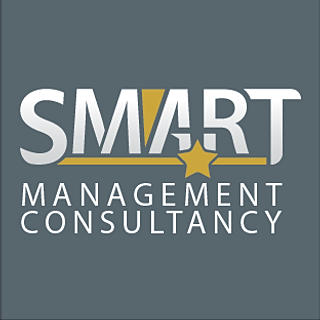Redefining Healthcare Quality: A Leadership Mandate in Today’s Complex Healthcare Environment
- Smart Management Consultancy
- Jun 3, 2025
- 3 min read

In today’s healthcare environment, quality is not just a goal, it is a mandate. Every health system, from a primary clinic to a national hospital network, is under pressure to deliver safer, faster, fairer, and more effective care. Yet one of the most fundamental barriers to this mission is a lack of clarity on what “quality” truly means.
As healthcare professionals and leaders, we cannot afford ambiguity. At SMART Management Consultancy, we believe that defining and operationalizing healthcare quality is one of the most important leadership responsibilities in modern healthcare.
What Does “Healthcare Quality” Actually Mean?
While we all strive for quality care, ask ten healthcare professionals for a definition, and you may receive ten different answers.
Here are the three most widely referenced definitions in global health policy:
1. Institute of Medicine (IOM)
“The degree to which health services increase the likelihood of desired health outcomes and are consistent with current professional knowledge.”
The IOM outlines six core dimensions:
• Safety – avoiding harm
• Effectiveness – using evidence-based services
• Patient-Centeredness – respecting patient values
• Timeliness – reducing waits and delays
• Efficiency – maximizing resource use
• Equity – providing care without disparity
2. World Health Organization (WHO)
“Quality healthcare is that which improves health outcomes, is safe, effective, timely, efficient, equitable, and people-centered.”
This aligns with the IOM but emphasizes people-centeredness, which is critical in culturally diverse systems like Bahrain.
3. Agency for Healthcare Research and Quality (AHRQ)
“Doing the right thing, at the right time, in the right way, for the right person—and achieving the best possible results.”
This pragmatic view appeals to clinicians, managers, and regulators who prioritize measurable outcomes.
Why These Definitions Matter
Without a shared understanding of what “quality” means, leaders face several critical challenges:
1. Competing Priorities and Perspectives
• Patients want compassion, communication, and convenience.
• Clinicians want tools to practice evidence-based medicine.
• Administrators want efficiency and compliance.
• Regulators want accountability and transparency.
Reconciling these views requires a strong leadership framework that unifies people under a common quality vision.
2. Cultural and Systemic Differences
Quality cannot be copied and pasted from one country to another. It must be contextualized. In Bahrain, for example, patient experience is deeply influenced by language, family involvement, cultural norms, and religious values.
3. Measuring What Truly Matters
You can count surgical site infections or readmission rates. But how do you measure respect, empathy, or trust? These “soft” components are vital—and they drive loyalty, outcomes, and reputation.
4. The Cost-Quality Paradox
Improving quality often means increasing investments—in staff training, technology, or systems. But how can this be balanced with rising financial pressures? Leaders must shift from viewing quality as a cost center to recognizing it as a performance driver and risk mitigator.
5. Moving Targets in a Rapidly Evolving Field
What was “best practice” last year may no longer be acceptable today. Leaders must adopt agile quality systems that adapt to change and foster innovation while still meeting regulatory standards.
The Role of SMART: Building Quality into the DNA of Your Organization
At SMART Management Consultancy, we help healthcare organizations move beyond checklists and compliance into real, sustainable quality transformation.
We offer:
• NHRA-accredited training and CME programs
• Strategic consulting to align clinical outcomes with business goals
• Accreditation preparation (NHRA, JCI, CBAHI, Accreditation Canada)
• Performance dashboards and patient experience systems
• Executive coaching in quality leadership
Our flagship course, “Healthcare Excellence through Quality Management,” is designed to empower your leadership team to integrate quality into operations, culture, and strategy.
Conclusion: Quality is a Strategic Advantage
In today’s value-driven healthcare economy, quality is the only sustainable differentiator. It enhances patient trust, reduces risk, increases staff satisfaction, and strengthens your reputation.
As leaders, we must stop viewing healthcare quality as a compliance issue and start treating it as the core driver of organizational success.
If you’re ready to move from theory to transformation, SMART Management Consultancy is here to partner with you.
📞 Call/WhatsApp: +973 36077750
📧 Email: info@smartmcbh.com
🌐 Website: www.smartmcbh.com















Comments